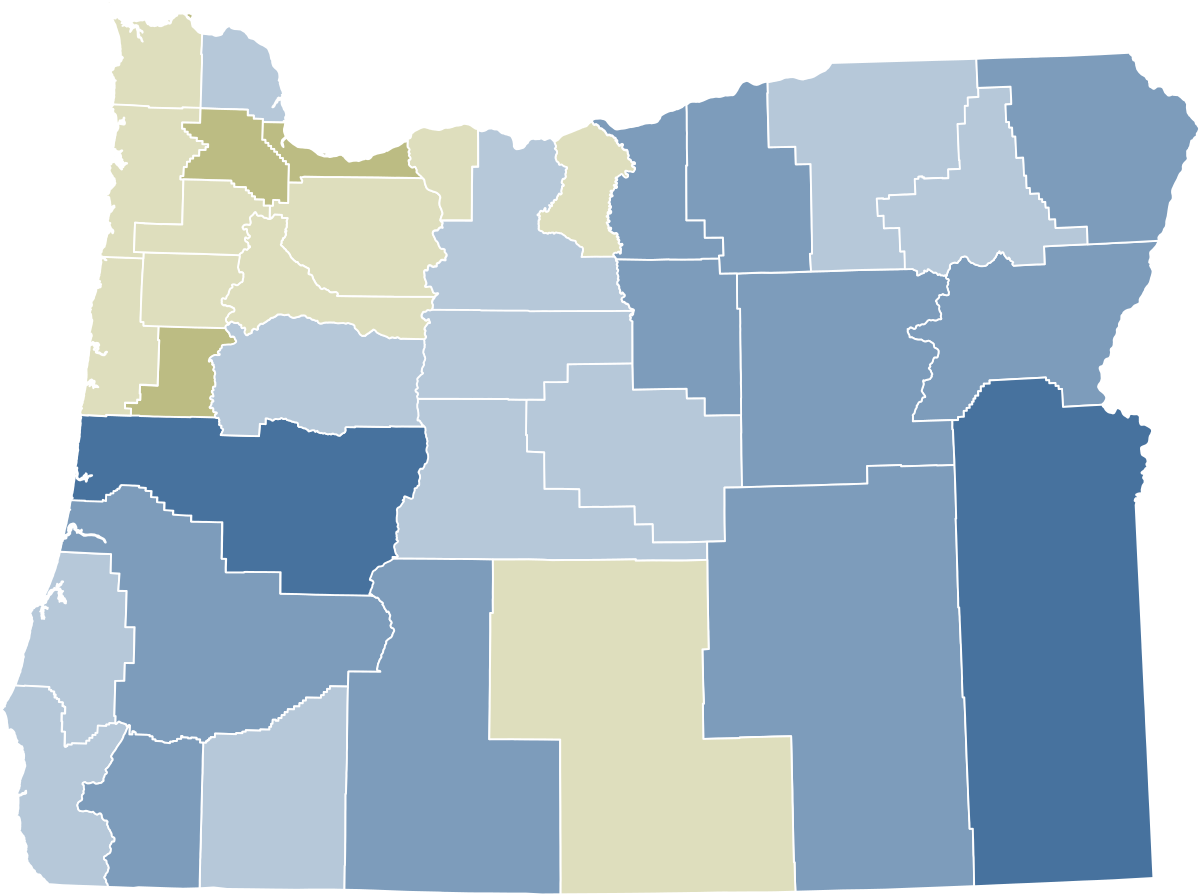Yes 784,376 Total votes 1,713,097 | No 928,721 1,713,097 100.00% | |
 | ||
784,376 7001457900000000000♠45.79% 928,721 7001542100000000000♠54.21% | ||
Oregon Ballot Measure 63 (IRR 21) was an initiated state statute that appeared on the November 4, 2008 general election ballot in Oregon. It would have allowed homeowners to make improvements costing less than $35,000 to their home/real estate without first obtaining a building permit.
Contents
Background
On May 5, 2008, the Oregon Secretary of State announced that the measure had sufficient signatures to qualify for the November ballot. 82,769 valid signatures were required, and the initiative's supporters had turned in 83,869 valid signatures, or 65.65% of the 127,755 total signatures that were submitted. During the campaign to collect signatures, the pro-initiative committee paid Democracy Direct, a petition drive management company, a little under $40,000 to collect signatures for the measure.
Specific provisions
If the measure had passed, the following provisions would have been enacted:
Estimated fiscal impact
The state's Financial Estimate Committee prepares estimated fiscal impact statements for any ballot measures that will appear on the ballot. The estimate prepared by this committee for Measure 62 says:
Supporters
The measure's chief petitioners were Alan Grosso and Bill Sizemore. The name of the officially-filed committee supporting the initiative was the "Fairness in Home Improvement PAC".
Arguments in favor of Measure 63
Notable arguments made in favor of Measure 63 included:
Donors in favor of Measure 63
Funds for signature collection for the proposal were donated by a group called Hire Calling Public Affairs, which was affiliated with Richard Wendt, founder of Jeld-Wen, a Klamath Falls manufacturing company.
Opponents
Defend Oregon was opposed to Measure 63, as was a group called Oregonians Against Unsafe Housing.
Arguments against Measure 63
Notable arguments made against Measure 63 included:
Donors opposing Measure 63
Defend Oregon, as a committee, fought seven different ballot measures, and supported two others. As a result, it is not possible to discern how much of its campaign money was going specifically to defeat Measure 59. Altogether, the group raised over $6 million in 2008.
Major donations to the Defend Oregon group as of October 8 included:
Newspaper endorsements
Here is how Oregon's major newspapers endorsed on the measure.
